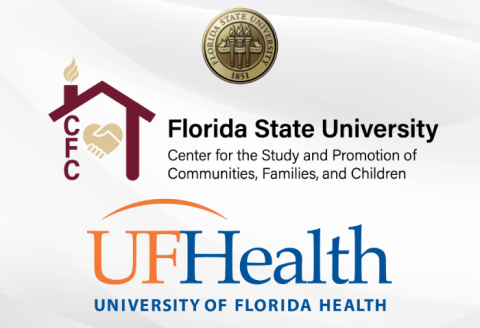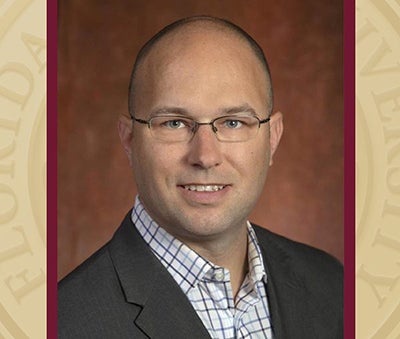FSU Center Announces Initiative to Advance Pediatric Transplant Health

A new partnership between the Center for the Study and Promotion of Communities Families and Children at Florida State University and UF Health at the University of Florida aims to improve outcomes for pediatric transplant patients and their families.
Rates of patient survival after receiving an organ transplant continue to be high for pediatric patients and continue to improve. Despite improvements, concerns remain with rates of hospitalization, organ rejection, and poor post-transplant health outcomes for these children and adolescent patients who experience greater challenges.
The Initiative for the Advancement of Pediatric Transplant Health Research maximizes the interdisciplinary nature of research in pediatric transplant health through a collaboration of a statewide network of health researchers and clinicians.
The initiative stems from the center’s mission to champion meaningful, applied research with community partnerships and educational opportunities.
“This initiative aligns well with the mission of the College of Social Work and our institutes and centers to apply research to the social issues that plague vulnerable populations we seek to assist,” said Craig Stanley, interim dean and teaching professor at FSU’s College of Social Work. “Evidence-based research is a cornerstone of ethical and effective social work practice.”

Dr. Michael Killian, an associate professor at the College of Social Work and a research scientist with the center, will lead the initiative’s research efforts. Dr. Dipankar Gupta, an associate professor in pediatric cardiology, pediatric heart failure and transplantation at the UF Health Congenital Heart Center, will co-lead the research.
Through the initiative, Killian, Gupta and interdisciplinary collaborators will enhance existing research and methodologies, expand research partnerships beyond FSU and UF and establish new research opportunities to improve health data and outcomes for pediatric transplant patients and their families.
“This initiative is an opportunity to advance research on pediatric organ transplant and develop collaborations across multiple pediatric transplant centers,” Killian said. “We know the importance of supporting these patients and their families, and we hope these research efforts can help us identify at-risk patients and families and inform our efforts to improve their quality of life and post-transplant outcomes. Pediatric transplant health research benefits not only the health and lives of patients and families but have far-reaching implications for improving quality of care in multiple pediatric health settings.”
He added: “We are extremely thankful for the joint support from the Center for the Study and Promotion of Communities, Families and Children at the FSU College of Social Work, the FSU College of Medicine, UF Health and our joint Clinical and Translational Science Institute.”
The initiative will focus on three research areas: advanced biostatistical modeling around patient adherence to immunosuppressive medications; machine learning/health informatics in the prediction of post-transplant health outcomes; and mobile health/technology-based intervention research promoting medication adherence and improved health outcomes in adolescent heart transplant recipients.
The effort addresses the need for consistent pre- and post-transplant care data that incorporates psychosocial assessments to improve medication adherence, which then leads to improved post-transplant outcomes.
“Despite medical and surgical advances, we have room for improvement in post-transplant outcomes,” Gupta said. “The impact of psychosocial aspects and family dynamics on outcomes after transplant is complex and should not be underestimated. Therefore, it is prudent that we continue to further our understanding of non-medical factors like social determinants of health, which impact outcomes in pediatric transplantation.”
“We are excited at the center to be at the forefront with this initiative, supporting Dr. Killian, Dr. Gupta and their colleagues to continue developing live-saving research for children and families across Florida and the nation, even worldwide,” said Ellen Piekalkiewicz, the center’s director.
The Center for the Study and Promotion for Communities, Families and Children generates and sustains transformational knowledge development with the goal of informing effective policies, services and usable research for the promotion of communities, families and children.
